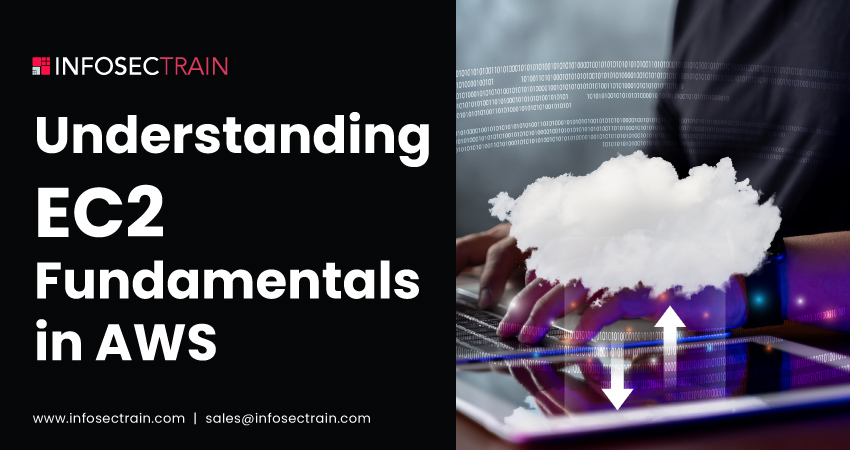Understanding EC2 Fundamentals in AWS

Table of Contents
What is AWS?
What is AWS EC2
Features of AWS EC2
Types of AWS EC2 Instances
AWS EC2 Payment Method
What is AWS?
Amazon Web Services (AWS) holds a leadership position in cloud computing. It offers a vast and complex range of services via its EC2 cloud platform, which you can use to build cloud-based applications. In addition to computational power, scalability, dependability, and secure database storage, AWS offers a combination of infrastructure and software services.
What is AWS EC2
Amazon Elastic Compute Cloud, or EC2, is a web service offering scalable, high-performance computing services in the cloud. As you have varying compute requirements, you can easily modify the number of server instances you use, making them resizable. EC2 is AWS’s infrastructure-as-a-service offering. It allows customers to run workloads and applications through a pay-as-you-go service, replacing the compute they currently run in on-premises data centers. Organizations can create applications more quickly due to this scalable capacity without investing in hardware upfront.
Features of AWS EC2
1. Virtual Servers (Instances): Amazon EC2 enables users to establish and oversee virtual servers, referred to as instances, within the cloud. These instances can be effortlessly adjusted in scale, either expanded or reduced, in response to changing demand.
2. On-Demand Pricing: Amazon EC2 provides a pricing model where users are billed on a pay-as-you-go basis. This allows them to pay solely for the actual computing capacity they use without incurring upfront expenses or committing to long-term contracts.
Pay for on-demand pricing based on the duration of usage, with charges calculated by the second. This pricing model allows users to only pay for the exact time their instances are active, providing cost-efficiency and flexibility for varying workload demands.
3. Variety of Instance Types: EC2 provides many instance types optimized for different use cases, such as compute-optimized, memory-optimized, storage-optimized, and GPU instances.
4. Operating System Support: Users can choose from various operating systems, including popular Linux distributions like Amazon Linux, Ubuntu, CentOS, and Windows Server.
5. Customizable: Users can configure their instances with different amounts of CPU, memory, storage, and networking capacity based on their application requirements.
Types of AWS EC2 Instances
1. General Purpose: General purpose instances offer a well-rounded combination of compute, memory, and networking capabilities, catering to various workloads. These instances are well-matched for applications that demand an even distribution of resources, like web servers and code repositories, ensuring balanced utilization. They offer versatility and effectiveness across a broad spectrum of tasks.
2. Compute Optimized: Compute Optimized instances excel in handling compute-intensive applications that require robust processing power. They are optimal for batch processing, media transcoding, high-performance web servers, scientific modeling, and machine learning inference. These instances are designed to deliver exceptional performance for compute-bound workloads, including dedicated gaming servers and ad server engines.
3. Memory Optimized: Memory-optimized instances prioritize swift performance for tasks that involve handling substantial datasets directly in memory. These instances are specifically engineered to efficiently manage and process large volumes of data without compromising speed or responsiveness. They are well-suited for applications such as big data analytics, in-memory databases, and caching systems where quick access to data is crucial for optimal performance.
4. Accelerated Computing: Accelerated computing instances utilize hardware accelerators, such as co-processors, to enhance the performance of specific functions like floating-point calculations, graphics processing, and data pattern matching. These accelerators enable more efficient processing compared to software running on standard CPUs.
5. Storage Optimized: Storage optimized instances are specifically designed to meet the needs of workloads requiring extensive, sequential read and write access to large datasets stored directly on the instance. They are fine-tuned to provide applications with tens of thousands of low-latency, random I/O operations per second (IOPS). These instances excel in scenarios where rapid access to large volumes of data is essential, such as database workloads and data warehousing applications.
6. High-Performance Computing (HPC): High-performance computing (HPC) instances are specifically designed to provide optimal price performance for executing HPC workloads efficiently at scale on AWS. These instances are well-suited for tasks requiring powerful processors, including large-scale simulations and deep learning workloads, where top-tier performance is crucial.
AWS EC2 Payment Method
1. On-Demand Payment: Charges for on-demand EC2 instances are based on the number of seconds (minimum 60 seconds) or per hour the model is running and being used. Since no long-term commitment is involved, you won’t need to spend much time planning and purchasing hardware.
2. Reserved Instance: You can obtain discounted pricing by committing to buy a particular instance configuration for one or three years.
3. Savings Plan: Savings Plans are an affordable pricing structure that provides affordable rates for using AWS Fargate, Amazon EC2, and Amazon Lambda. You pay a reduced rate in exchange for using the service consistently for one or three years, based on usage time.
4. Spot Instance: You can specify a bid price range for EC2 instances that you are willing to pay for a significant discount from on-demand instances. As long as the “market bid price” of models that meet your needs is within your specified range, these instances will be purchased and turned on.
About InfosecTrain
Cloud specialists are highly sought after as more companies prioritize constructing cloud-based infrastructures. This is among the most effective ways to make money and advance your career. InfosecTrain provides comprehensive security training and consulting services, ensuring organizations receive expert guidance in enhancing their cybersecurity posture. Whether you are a beginner in the industry or a specialist in the cloud domain, if you need expert and strategic advice for your preparation, InfosecTrain is prepared to help. Enroll in our certification training programs for AWS Cloud Practitioners.







 1800-843-7890 (India)
1800-843-7890 (India)